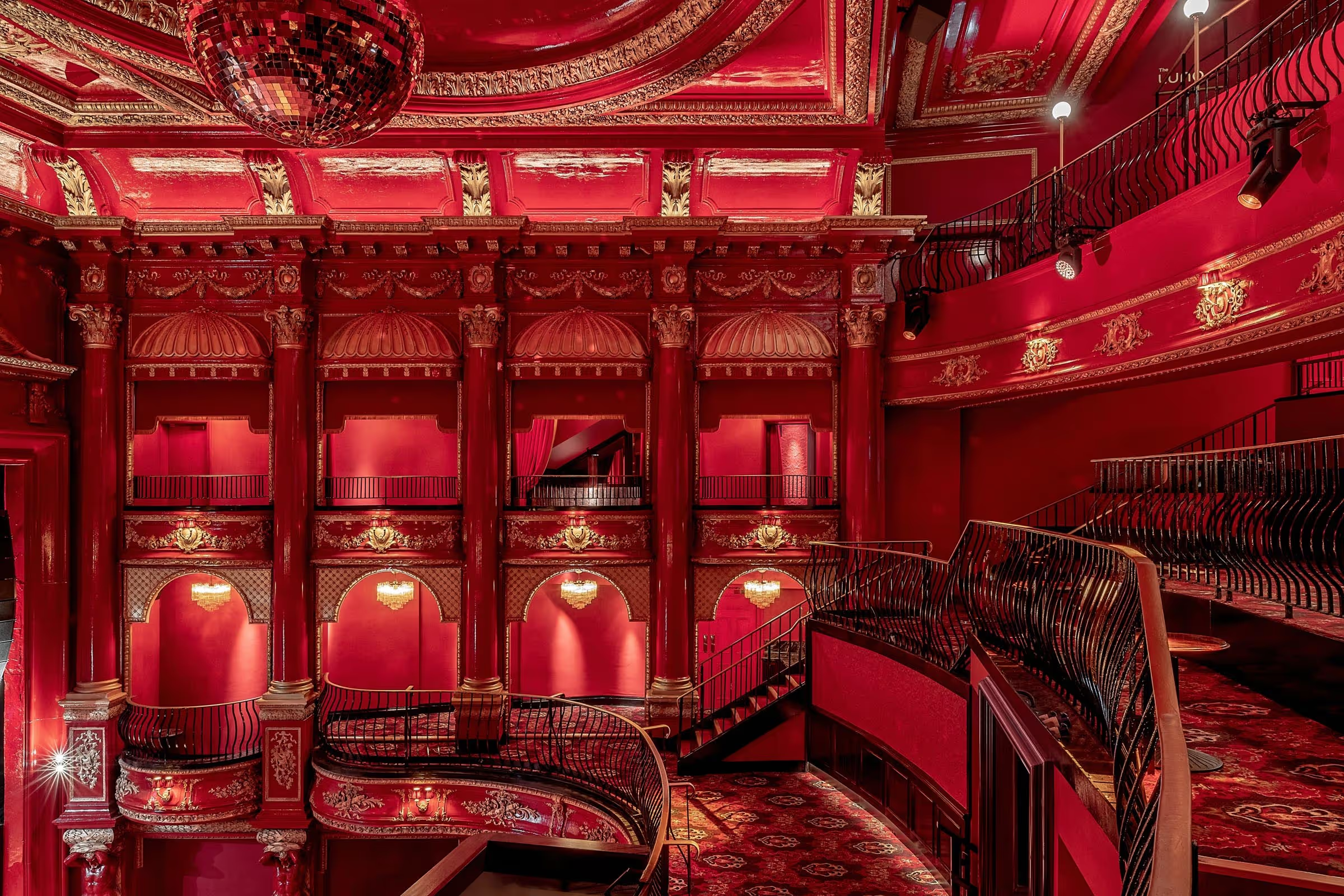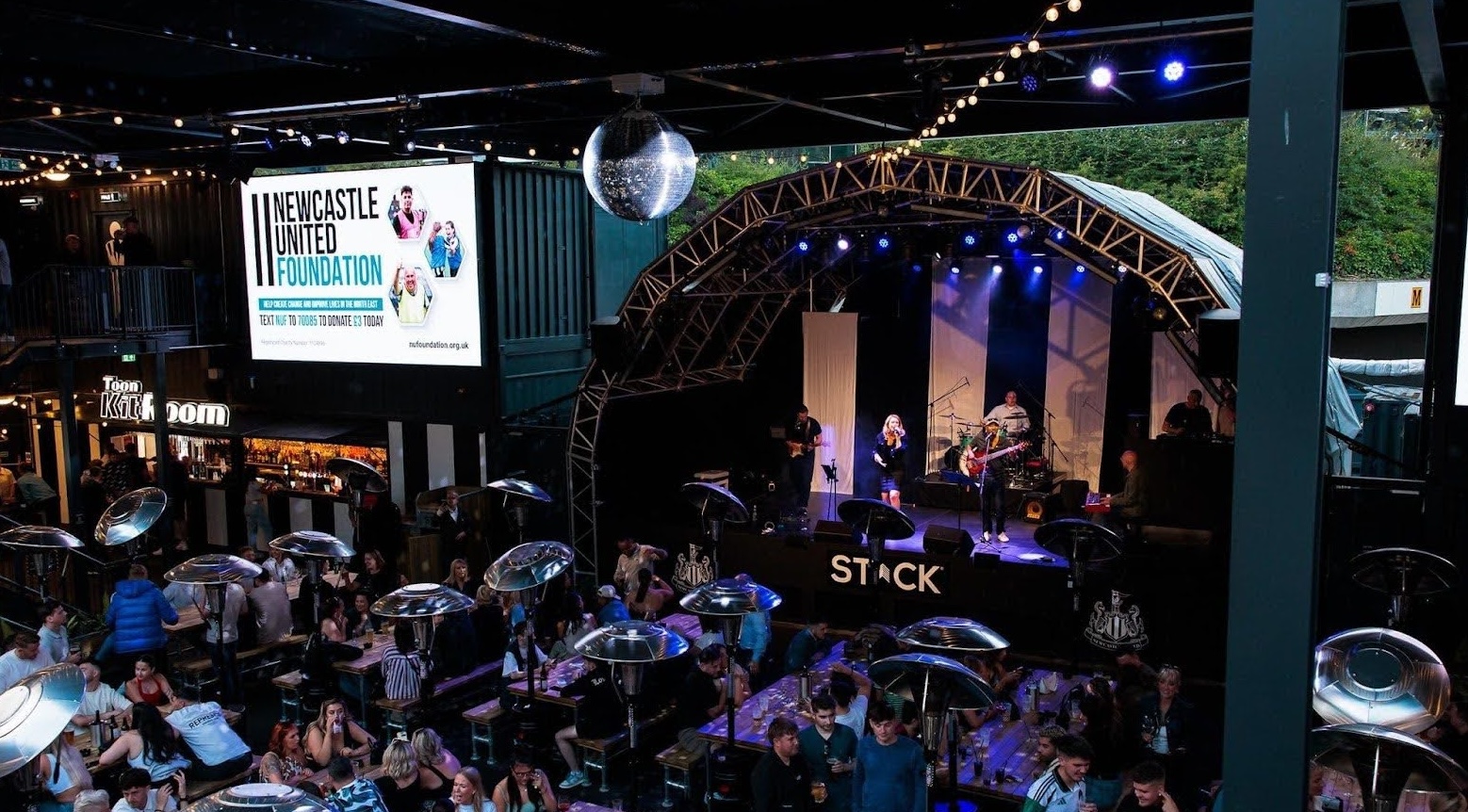
How Merchandise Commission Hurts Musicians
The Featured Artists Coalition (FAC) has urged venues not to charge commissions on artists as it attacks the touring ecosystem, an opinion which is shared by Nick Lewis, Head of Music at KOKO in Camden.
Touring costs are, at present, staggeringly inflated to the point where gigging is becoming more and more commercially unviable for musicians, leaving merchandise sitting on a tilting scale to whether artists make or lose money.
This ultimately means that venues take money away from sales of posters, clothing and albums leaving music creators out of pocket.
Some music venues are charging 25% commissions, which have been criticised by the FAC, who are calling out the places responsible for taking a significant cut of one of the artists' key sources of revenue.
The FAC has launched a campaign to encourage venues to abolish charging commissions for artists and 649 spots across the country have already committed themselves to this pledge.
This is aimed to combat such levels of commission which are now widely perceived as unjustifiable and obstructive to touring musicians.
GigPig is committed to ensuring that all our artists are charged zero commission when they're signed up to our platform.
This ensures that there is more money in your pocket during these uncertain times, especially when you need it the most.
The FAC’s movement has been spearheaded by Charlatans frontman Tim Burgess, who has openly stated that artists need income from merchandise to survive.
This has additionally been backed by the bassist of New Order and Joy Division, Peter Hook who shared his unrest with the current climate of performing live.
This issue has resulted in artists taking matters into their own hands such as bands The Big Moon and Yard Act selling their merchandise at pop-up shops nearby to curve the commission set by the venues.
Additionally, DIY psychedelic punk band, The Lovely Eggs took to Twitter to share their outrage after the O2 Apollo in Manchester took a 30% commission on their merchandise after supporting Pavement.
The band from Northern England are one of the most exciting, innovative and genuine bands on the British Underground Music Scene.
GigPig spoke to guitarist and lead singer of the band, Holly Ross about the current state of the issue.
Ross said: “It’s stifling for us because as a band it’s a great experience to play bigger venues and play with bigger bands than us, but obviously it puts you off wanting to do that if this is the shit you have to deal with.
“We had no advance warning of this, and if we did we would’ve said that we’re not selling merch but they didn’t tell us.
“The moral point of it is that we were almost dragged into the industry machine without our will and it's sickening to me the idea of selling T-shirts for £35, and I don’t like that part of the music industry and I do not want to become a part of it.
“You’re fucked all ways if you’re a small band if you’re selling a T-shirt for £35 and then nobody is going to buy that T-shirt because you’re the smallest band on the bill.”
Ross added: “We want everyone to wear a Lovely Eggs T-shirt and when bands charge ridiculous money like £35 for a T-shirt it’s absolutely daylight robbery.
“It just makes it really wrong for the fans and I don't like anything that puts people who have got money in a place of advantage.
"Larger venues have no right to take money away from smaller DIY artists like ourselves or any band who hasn’t got merchandise commission in their contract.”
Speaking about the work that the FAC is doing, Ross said: “I think this should be encouraged, but I think maybe they need to concentrate on the larger venues, the buggers basically, as the smaller independent ones were doing it anyway.
“Maybe the FAC doesn’t need to say no merch to the larger venues, but no forced merch commission.”
Ross commented on the stance that Yard Act and The Big Moon took to avoid the commission.
She said: “It’s genius and good on them and we would have done it if we hadn’t found out an hour before we went on stage we would have done that.
“More power to everyone who does that because it's really important to stand up, but it’s really the big bands that should stand up and say you shouldn’t force us if we do not want to - that’s what's important.”
However, one of the places that is committed to no commission is Camden’s iconic KOKO.
We caught up with KOKO’s Head of Music, Nick Lewis, about this matter.
“I don't think it's supportive of the live ecosystem at large, and we all have to support each other, If you work against each other, then there's no industry.
“Merch sales, many times make the difference whether you are to break even, lose or make a bit of profit on the show, so merch is absolutely vital to touring.
“At the end of the day, the artists are the beating heart of the industry, they are the creatives and you're going to jeopardise their livelihoods with things like 25% for merch, where for a band it means that they can't afford to tour.
“There becomes not much of an incentive for them to even sell the merch, other than just pleasing their fans.
“I'd like to see more artists take a stand and say, I'll actively go and play venues that do support grassroots emerging artists.”
KOKO has been a trailblazer in supporting emerging talent and has done so since opening their doors in 1901, where they have welcomed iconic acts such as Prince, Madonna and The Rolling Stones, to Amy Winehouse, Stormzy and Dua Lipa.
However, KOKO has only recently reopened following a three-year closure, and a large-scale restoration and redevelopment which transformed the venue into a 50,000-foot space with multiple stages for artists to perform and live stream their music - this means their costs are higher than most.
Lewis added: “Like all other hospitality venues, we have had to deal with the unprecedented increase in utility bills over the past year which has had an impact.
“We've re-balanced the books and are making adjustments elsewhere to see if we can do our best to try and cover that.
“But the music scene in the UK is so strong at the moment, and it's never been more diverse and that's one of my biggest jobs, just ensuring that we represent that diversity and represent the community.
“I'm really proud that KOKO is a venue that puts on all genres of music.”
The work that KOKO is doing should be held as an example for other venues to ensure that touring musicians are completely protected from such financially crippling practices.
Related news


.jpg)
.jpg)

.svg)

